Above: Luis and Kian King have Krabbe Disease and are searching for a donor
Seven year-old identical twins Kian and Luis King, from Leicestershire, have been fighting for their lives since before they were born, when they arrived into the world 12 weeks prematurely.
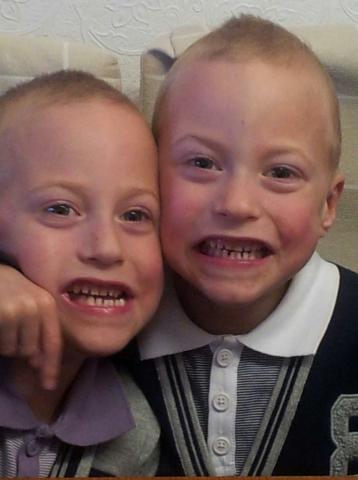
But now these brave and lively ‘miracle babies’, as their proud parents describe them, who love wrestling, cars and Olly Murs, are facing their greatest struggle yet, having been diagnosed with an extremely rare genetic condition called Krabbe Disease.
The aggressive condition is a form of Leukodystrophy and means that they don’t develop enough Myelin Enzyme, the protective sheath that protects the nerves – this leads to a build up of toxins, affecting brain function, leading to severe degeneration of motor skills and life expectancy.
Children diagnosed with Krabbe Disease as infants typically only live for two years, but the progression is slower in children who are diagnosed at an older age like Kian and Luis, who were diagnosed on 15th October last year when they were six years old.
There is no known cure, but doctors have advised that giving each of the boys a stem cell transplant at Birmingham Children’s Hospital may delay or stop the illness progressing. This could potentially give the twins many more years and a better quality of life – but only if a matching donor can be found by the blood cancer charity Anthony Nolan.
The twins’ parents Laura Otter and Dean King and their families have launched an appeal urging people to join the Anthony Nolan register. The family are rallying support from friends and strangers alike and have also been supported by savebabies.org.
A donor recruitment event is being held on Friday 13th March at Rawlins Academy on Loughborough Road, Quorn, from 4pm – 7pm, where people can join the Anthony Nolan register simply by spitting into a tube.
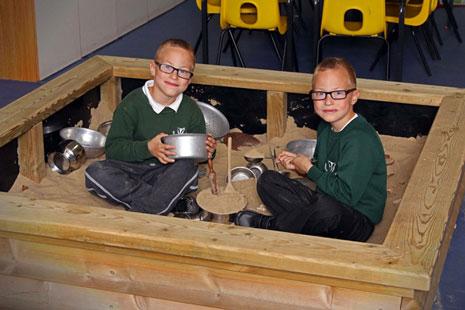
“You take things for granted,” said Laura, from Sileby, Leicestershire. “As a mum, you want to fix your children and it’s easy to assume that the doctors will have the answers. You never expect them to turn around and say there isn't any medicine, there’s no donor.
“Now we’re looking for that person who can save their childhood. Having children is magical but I can only imagine how magical it would be if someone could help them. You couldn’t give anybody a better gift.”
The condition is so rare that Laura isn’t aware of any other UK children who have had a stem cell transplant for Krabbe Disease.
But the clock is ticking as a stem cell transplant cannot repair cognitive or mobility damage that’s already occurred, explained Laura.
“We don’t have a lot of time. The sooner the boys are able to have their transplant, the better their quality of life will be. If we leave it too long, they will have irreversible damage or even have deteriorated too far to undergo such a major procedure. We just can’t miss our window to give the boys a longer and happier childhood. The sooner we find a donor, the more of them we can save.”
Luis and Kian’s sisters Ella-Mae, 11, and Shannon, 14, have been tested and are not a match for the boys and are also not affected by the condition. A search of the worldwide registries by Anthony Nolan - 25 million people combined - is now under way to find a matching stem cell donor for the boys.
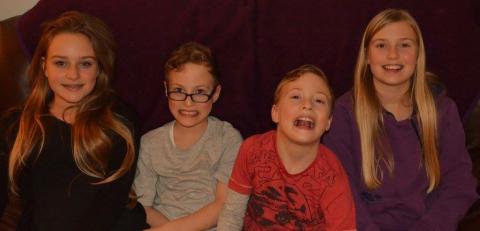
The situation is particularly distressing to the family after they suffered a devastating loss. In 2007, Laura’s baby nephew sadly died aged just one year old, from Infantile Krabbe Leukodystrophy.
“At the time, I was tested to see if I had the same gene, and I asked them to test my partner too, but they refused to test him as they said it was so unlikely. As you can imagine there’s a lot of anger and regret there as you can’t help but wonder if it could have been picked up sooner."
Laura recently had to give up her job as a hairdresser to care for Kian and Luis, after the medical appointments and caring duties began to mount up. “They may be twins with the same condition, but they’re treated as individuals so it’s double the appointments, double the paperwork and double the time,” said Laura.
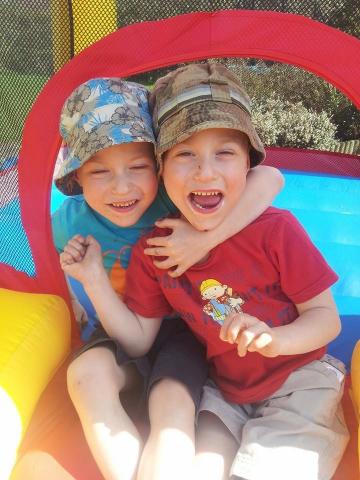
The boys have ‘fought since the day they were conceived’. Kian and Luis had twin-to-twin transfusion syndrome in the womb, which meant one was getting more blood than the other, and they were born at 28 weeks (12 weeks early), which led to brain damage in both twins both boys had various complication during a stormy neonatal period.
“They’re my miracle babies. After three months in hospital, we took them home weighing only 3.5lbs and 4lbs. With lots of support and physio, they slowly started growing and doing normal things that toddlers do and, against the odds, began walking and talking and enjoying life with their sisters."
“Now, in lots of ways they’re just like normal little boys. They’re football-mad and car-mad, and they love wrestling each other as brothers do. Luis is the cheeky one and he loves dancing around to Olly Murs and Jessie J. Kian is sensitive and caring and has a lovely personality. Kian now has to be in a wheelchair when we’re outside the house, as he can no longer walk, but when we’re inside the house he crawls around and still loves singing along to music.”
Reflecting on the last seven years, and her new appeal for stem cell donors, Laura said: “I find myself wondering how so many battles can happen to two little people? When I think of everything that Kian and Luis have been through, I just can’t let it all be for nothing – it’s got to be for something, so I won’t rest, I won’t allow my babies’ lives to be in vain.
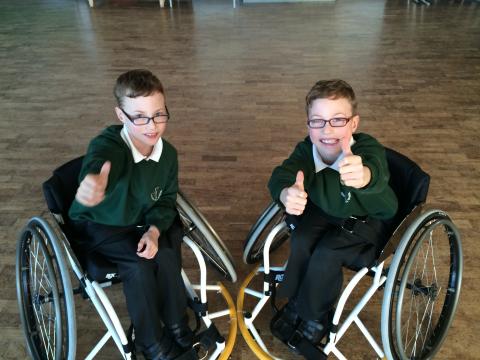
“If we can’t save them, I just hope that what we go through will mean that future families don’t have to search for answers, or be told there’s no matching donor on the register. That would be a dream come true, to know we’ve helped others. It’s what any mum would do – the boys are my world and I won’t stop.”
How you can help
If you are aged 16 to 30 and in good health you can join the register of potential donors by clicking on the button below. Signing up involves filling in an online form and providing a saliva sample. Once you're on the register, you'll stay on and can be a potential match until you're 60.

